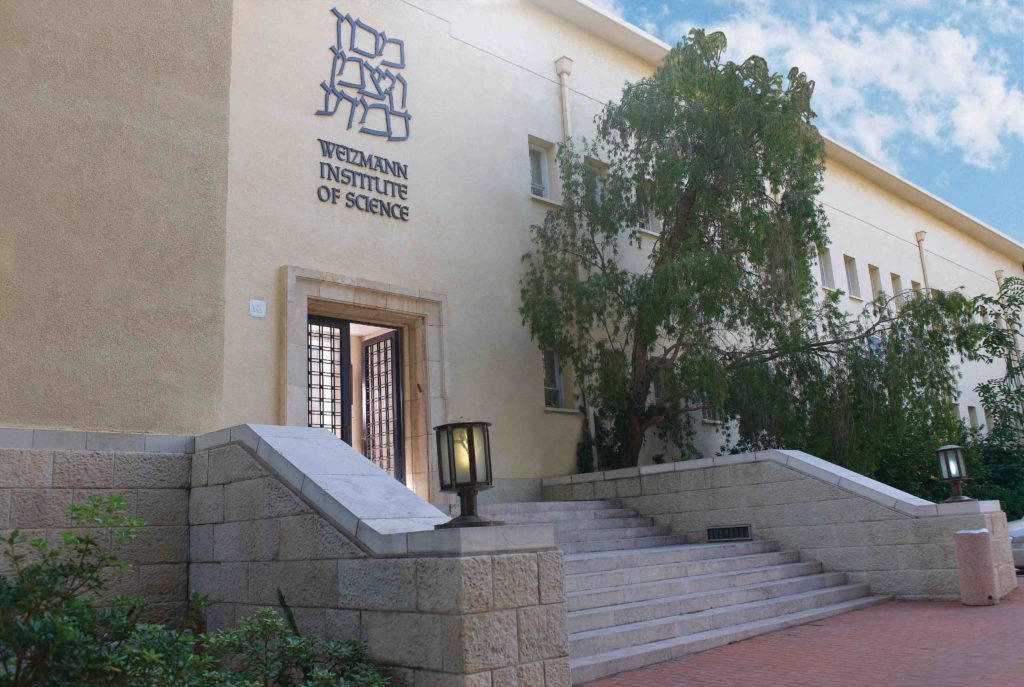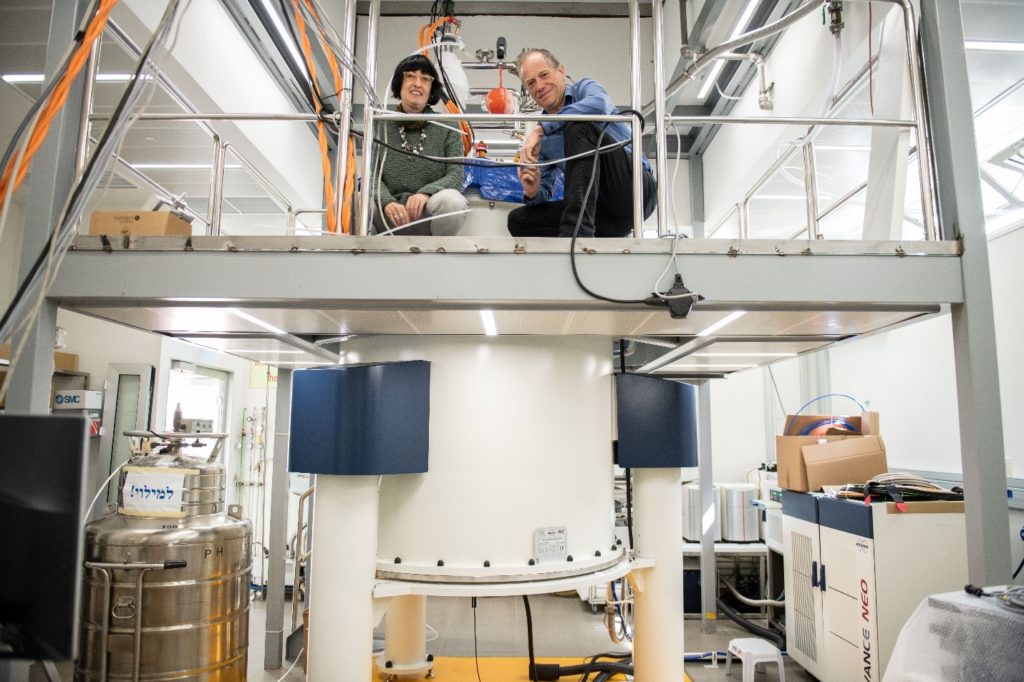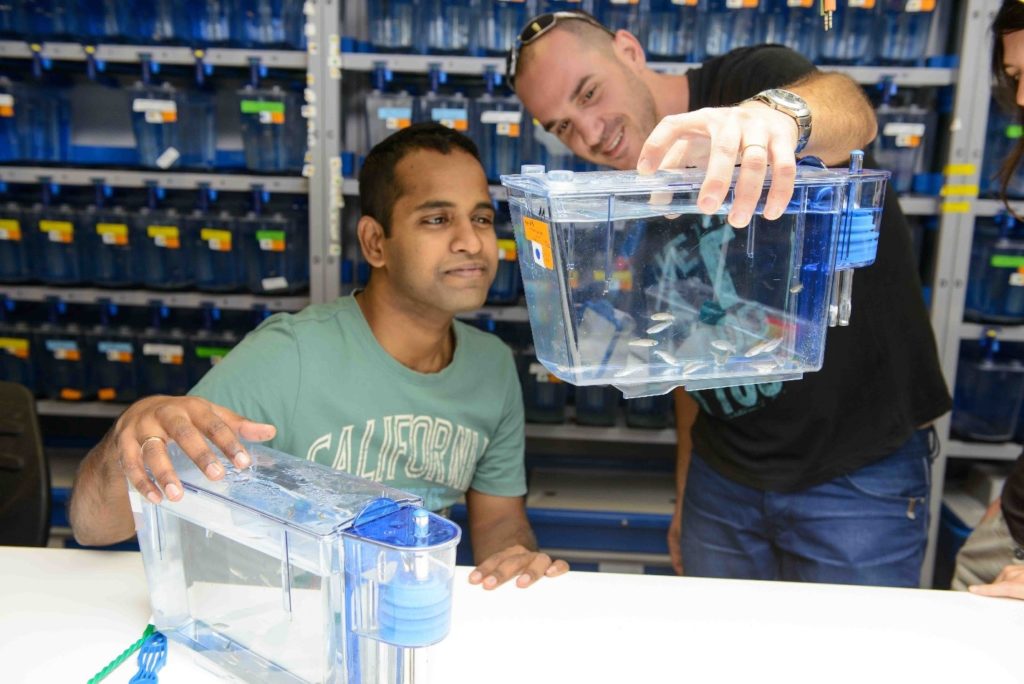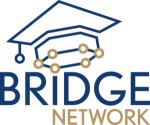
The Weizmann Institute of Science is one of the world’s leading multidisciplinary basic research institutions in the natural and exact sciences. The Institute’s five faculties – Mathematics and Computer Science, Physics, Chemistry, Biochemistry and Biology – are home to scientists and students who embark daily on fascinating journeys into the unknown, seeking to improve our understanding of nature and our place within it.
History
The Daniel Sieff Research Institute, which was the foundation of the Weizmann Institute, was established in 1934 with the support of Israel and Rebecca Sieff of London in memory of their son Daniel. The driving force behind its creation was the Institute’s first President, Dr. Chaim Weizmann, a noted chemist who headed the Zionist movement for years and later became the first President of the State of Israel. In 1949, the Institute was renamed and formally dedicated as the Weizmann Institute of Science, in honor of Dr. Weizmann’s 75th birthday.
Over the years, the Weizmann Institute has grown with the country, and it has been the site of numerous milestones in Israel’s science.
Vision and Mission
To be able to shape a better future, the Weizmann Institute is continuously developing and constantly changing. Boundaries between different disciplines are being torn down and formerly impossible collaborations are being formed. This super-multidisciplinary approach is part of a worldwide trend, and the Weizmann Institute is at its leading edge.
The scientists at the Institute are accepted on the basis of simple, but crucial criteria: excellence and curiosity. As the goal of the Institute is to produce high-quality basic science, there are no requirements when it comes to developing marketable drugs or technology. Advances in understanding the processes that shape supernova are as important, in this context, as understanding the molecular processes that occur as a cell turns cancerous.
To become successfully integrated into this new world and be able to choose wisely among an ever-expanding array of options, people from all walks of life must be able to understand the basic principles and concepts of science and technology. Together with the Science Teaching Department, whose researchers have developed dozens of innovative method and curricula that are being adopted around the world, the Davidson Institute of Science Education and the Schwartz/Reisman Science Education Center — both on the Institute campus – work with teachers, students and the general public. From leading the way in the field of personalized medicine to operating dozens of programs that grant basic scientific knowledge to all sectors of the population, the Institute contributes to human dignity and freedom.

Size and Scope
Today there are around 250 research groups at the Institute, each headed by a PI.
The faculties include 18 departments: Biological Regulation, Immunology, Molecular Cell Biology, Neurobiology, Biomolecular Sciences, Plant and Environmental Sciences, Molecular Genetics, Organic Chemistry, Structural Biology, Materials and Interfaces, Chemical and Biological Physics, Earth and Planetary Sciences, Physics of Complex Systems, Physics of Condensed Matter, Particle Physics and Astrophysics, Mathematics, Computer Science and Applied Mathematics, and, in addition, Science Teaching.
In addition, core facilities, research centers and such support units as a proteomics center, advanced NMR facility and observatory all work with the scientists to produce the most accurate results possible. Research groups are typically small, comprising a PI and one or two staff scientists, postdocs and graduate students. Each of these is encouraged to work within the framework of the lab’s overall goals while pursuing independent research questions.

Achievements
Institute scientists were pioneers in the field of cancer research in Israel. Others planned and built the country’s first electronic computer, one of the first in the world; yet others founded the first nuclear physics department and erected a particle accelerator next door. They were the first to establish a company for transferring knowledge from academia to industry (Yeda), and they initiated the founding of a science-based industrial park near the Institute. Several cancer treatments developed in Institute labs, including a unique “phototherapy” method for treating prostate cancer have been granted approval in recent years, and are already saving lives.

